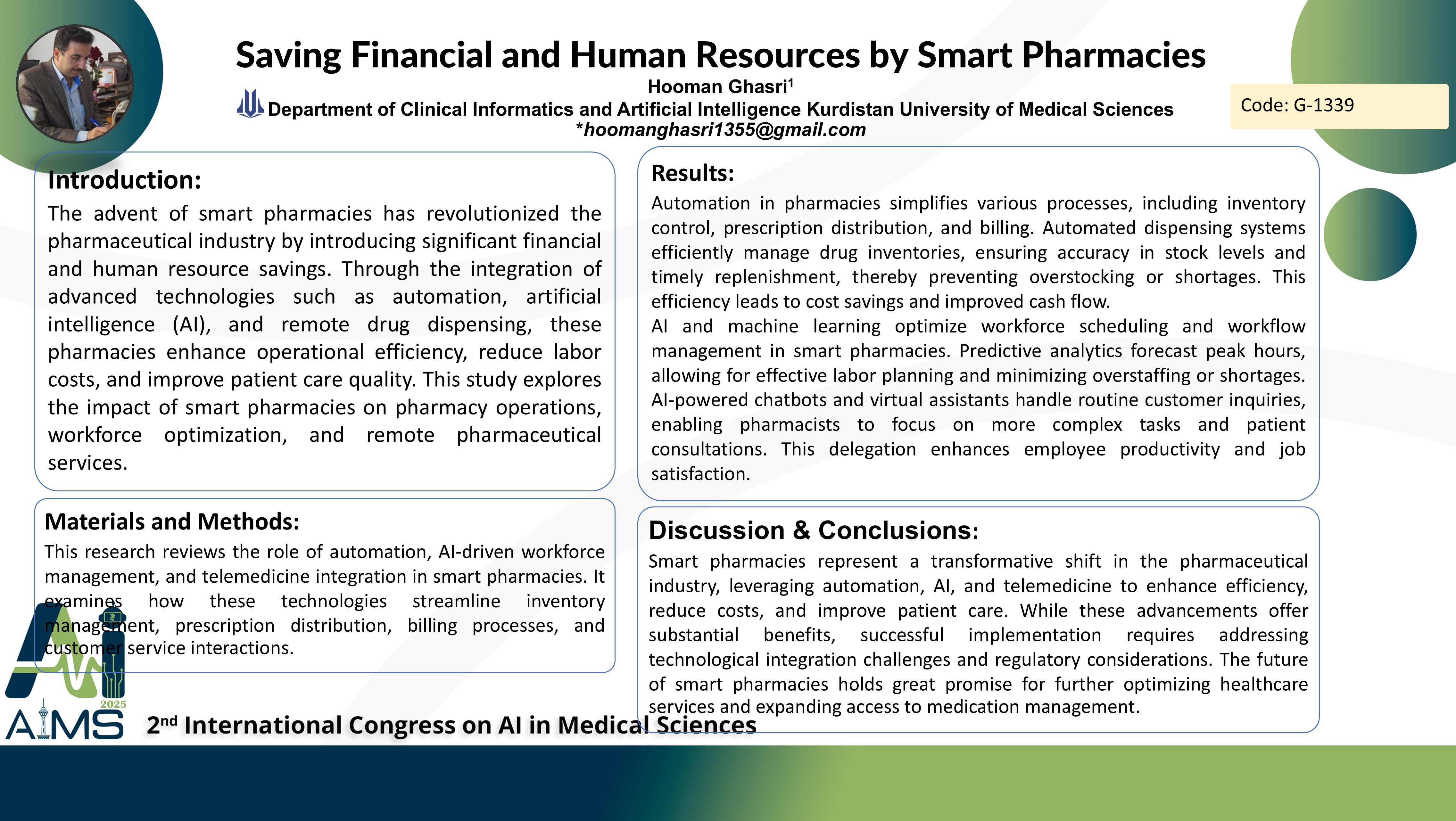Saving Financial and Human Resources by Smart Pharmacies
Code: G-1339
Authors: Hooman Ghasri * ℗
Schedule: Not Scheduled!
Tag: Clinical Decision Support System
Download: Download Poster
Abstract:
Abstract
Background and Aims: The advent of smart pharmacies has revolutionized the pharmaceutical industry by introducing significant financial and human resource savings. Through the integration of advanced technologies such as automation, artificial intelligence (AI), and remote drug dispensing, these pharmacies enhance operational efficiency, reduce labor costs, and improve patient care quality. This study explores the impact of smart pharmacies on pharmacy operations, workforce optimization, and remote pharmaceutical services. Method: This research reviews the role of automation, AI-driven workforce management, and telemedicine integration in smart pharmacies. It examines how these technologies streamline inventory management, prescription distribution, billing processes, and customer service interactions. Results: Automation in pharmacies simplifies various processes, including inventory control, prescription distribution, and billing. Automated dispensing systems efficiently manage drug inventories, ensuring accuracy in stock levels and timely replenishment, thereby preventing overstocking or shortages. This efficiency leads to cost savings and improved cash flow. AI and machine learning optimize workforce scheduling and workflow management in smart pharmacies. Predictive analytics forecast peak hours, allowing for effective labor planning and minimizing overstaffing or shortages. AI-powered chatbots and virtual assistants handle routine customer inquiries, enabling pharmacists to focus on more complex tasks and patient consultations. This delegation enhances employee productivity and job satisfaction. Furthermore, the integration of remote drug dispensing and telemedicine services expands the reach of pharmacies, enabling remote patient care. This approach reduces the need for extensive physical infrastructure while allowing pharmacies to serve a broader patient base without additional physical locations. Online pharmacy platforms facilitate remote consultations, prescription verification, and patient education, all of which contribute to cost savings and improved healthcare accessibility. Conclusion: Smart pharmacies represent a transformative shift in the pharmaceutical industry, leveraging automation, AI, and telemedicine to enhance efficiency, reduce costs, and improve patient care. While these advancements offer substantial benefits, successful implementation requires addressing technological integration challenges and regulatory considerations. The future of smart pharmacies holds great promise for further optimizing healthcare services and expanding access to medication management.
Keywords
Smart Pharmacies, Automation, Artificial Intelligence
